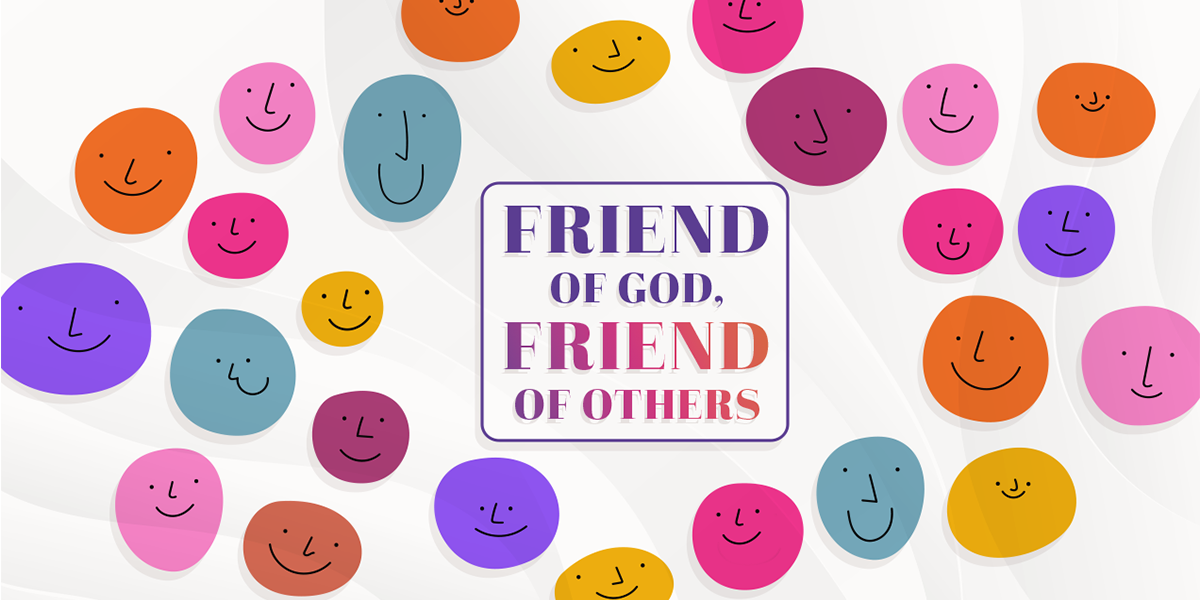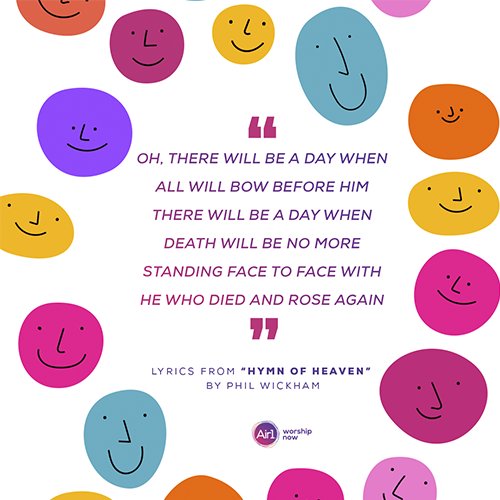
“I love Jesus, but I can’t handle the church.”
“I have Jesus - I don’t need anyone else.”
“Why do I need the church, when I already have Jesus?”
In our world today, the sentiment of focusing on our personal relationship with Jesus is extremely common. Historically though, this kind of thinking would have been uncommon. Hundreds of years ago, when the Bible was not translated into the common language and you had to actually be in the room to experience sound Bible teaching, the emphasis was on the corporate gathering of Jesus-followers.
Times have radically changed. With multiple Bible translations and hundreds of study helps at our fingertips, along with thousands of podcasts updating each week, it’s very easy to think we have all we need to follow Jesus on our own. The kind of individualism which shapes every other facet of the Western world shapes our approach to faith too.
This trend stands in stark contrast to the New Testament. When it came to faith in Jesus and participation in the body of believers, you didn’t have one without the other. Being part of the church was not just a weekend thing or the way you spent your Sunday mornings; it was a daily experience of community with others.
In the books of Romans and First Corinthians, Paul talks about the followers of Jesus being a part of the same body, where one part can't say to another “I’m not a part of you,” or “I’m going to do my thing without you.” In the book of Hebrews, the believers were entreated to not forsake gathering together. In the book of James, the believers were told to confess their sins to one another, that they might be healed. You needed someone else to accomplish this imperative. In the book of First John, the beloved disciple of Jesus said “you cannot say you love God but hate your brother.”
The fundamental principle here connects friendship with God to friendship with other followers of Jesus. Growing closer to God leads to growing closer to others.
Before we go any further, there’s a huge elephant in the room that needs addressed. What about church hurt? How can we be expected to follow all these Biblical commands when we have deep wounds, perhaps still fresh from betrayal or abuse in the context of church?
You have to be ignorant to be unaware of the trends when it comes to trauma and hurt that people have experienced in the church today. On a weekly basis, I meet guests at our church who share about their search for a new home after experiencing profound loss in another spiritual community. As a lead pastor, nearly all candidates I’ve interviewed for three different staff positions in the last three years have shared about deep pain they’ve experienced in the context of church life.
To ignore that pain would be heartless. Trauma complicates our application of these simple commands. When I started leading the church I’ve served for the last six years, I was still reeling from a betrayal in the final weeks of my service to a previous church. I felt the pressure to initiate new relationships even as I was trying to understand the hurt from past ones. Looking back, I can see how guarded and resistant I was to the innocuous attempts of people who wanted to get to know my family. My physical hand wasn’t extended to keep them at a distance, but an invisible emotional hand certainly existed.
Does our hurt give us a pass on abandoning the pattern of the early church and hundreds of years of church history, though? As I consider my personal history, I don’t see any patterns of sustained growth which happened apart from deep intimacy with others who were going in the same direction. Can we grow in our friendship with God apart from growing in our friendship with others? To be a friend of God seems to mean that we befriend others, too.
In the face of our individualism and our hurts, there is a clear need to restore the connection between spiritual health, emotional health, and relational health. Maturing spiritually is not possible without maturing in our emotional health and relationships. You cannot be like Jesus merely through accumulating knowledge; what you are learning must transform how you are living and relating.
I once read that since some of our deepest wounds come from relationships but some of our deepest healing comes in the context of relationships too. This starts with God. If you feel like you haven’t been safe with people, you can begin by experiencing safety with God. As Christian therapist and author Aundi Kolber notes in her book, Try Softer, “God is a secure attachment.” The wounds people gave us can be healed by drawing near to God.
In deepening our friendship with God, we will encounter opportunities to deepen our bonds with others. As we grow in our love, care, and passion for God, God will deepen our love, care, and passion for some people around us. Those people may very well be different from those who hurt and created trauma in our lives. The community we find healing within may be a different community than the one that hurt us. Nevertheless, God - our friend - will heal our hearts, so that our hearts reflect His, which beats with a deep love for people.
One of my friends talks about a simple filter for the actions we should take on earth as Jesus-followers. He asks, “How can we start practicing for heaven?” Phil Wickham sings about one of those things we’ll do in heaven in his song, “Hymn of Heaven.”

We won’t have billions of Jesus-followers worshiping Jesus in isolation in heaven. Together, before His throne, we’ll bow our knees and raise our voices in praise and worship. If heaven is going to be a community experience, then shouldn’t we get a head start now? Shouldn’t our growing friendship with God be paired with a growing friendship with others?
Scott Savage is a pastor and a writer. He leads Cornerstone Church in Prescott, Arizona. Scott is married to Dani and they are the parents of three “little savages.” He loves helping hurting people forgive others through his Free to Forgive course and you can read more of his writing at scottsavagelive.com.





